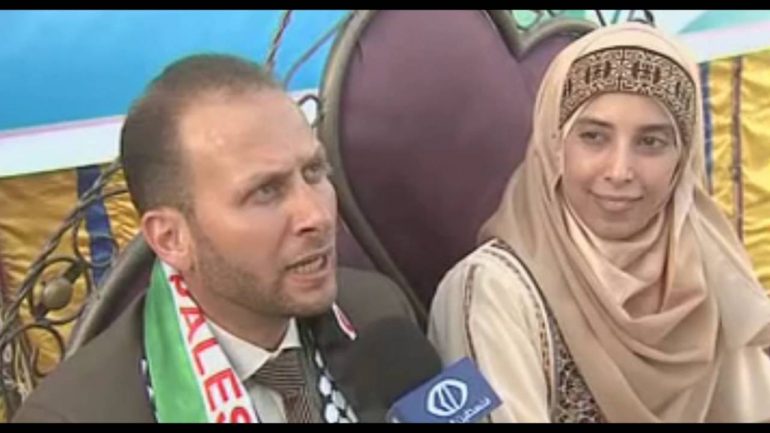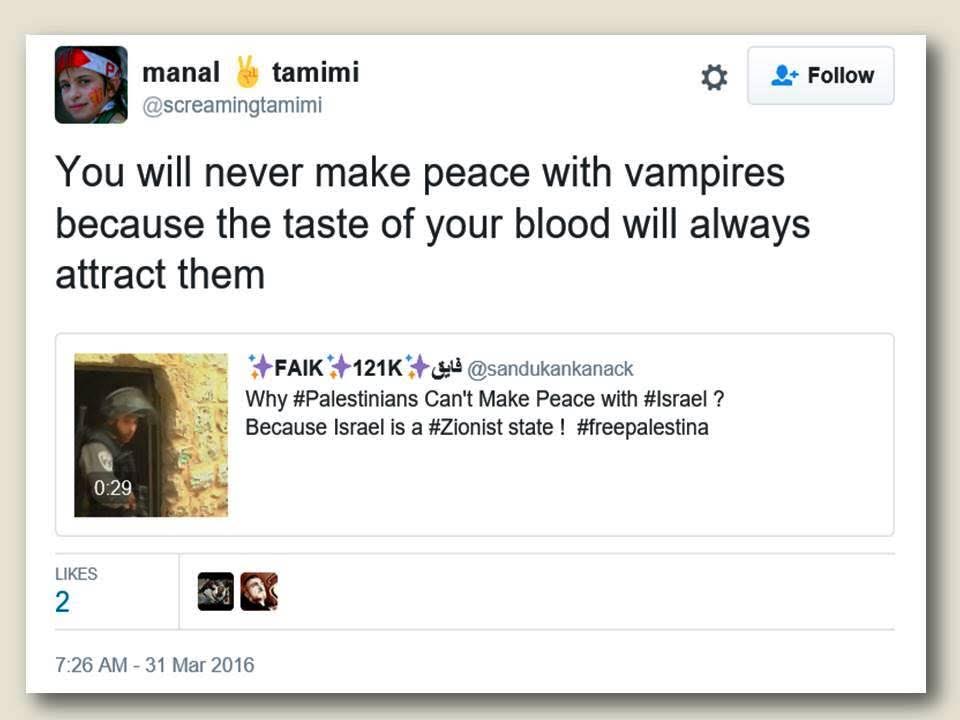A guest post by Petra Marquardt-Bigman
As readers of The London Magazine will learn in the latest issue of the publication, the American writer Ben Ehrenreich thinks “that the word ‘terrorism’ forms this very powerful narrative function in silencing Palestinian voices and giving the soul authority to Israelis.” Well, Ehrenreich probably meant “the sole authority,” but the lack of editing and proof-reading is definitely the least disturbing aspect of his defense of Palestinian terrorism published by “England’s oldest literary periodical.”
The magazine describes itself as “[e]clectic in taste, promiscuously interested and unapologetically intelligent” and claims to offer “unmissable reading for anyone with an interest in literature, culture and ideas.”
What the magazine doesn’t tell its readers in the article on Ehrenreich is that his “idea” has long been that “Zionism is the problem;” arguably, this “idea” helps to explain Ehrenreich’s obvious sympathy for Palestinians who agree with his view and devote themselves to “solving” this “problem” once and for all.
Among the Palestinians Ehrenreich admires most are the Tamimis of Nabi Saleh – they have hosted him and are the main protagonists of his book; indeed, four prominent Tamimi clan members are listed first in Ehrenreich’s Acknowledgements and credited with making his book possible with their “abundant help, generosity, hospitality, kindness, laughter, encouragement, insights, and wise counsel.”
There is no doubt that the Tamimis agree with Ehrenreich that “Zionism is the problem;” they also have very clear ideas about how to “solve” this “problem,” and they have freely expressed these ideas on social media.
Given Ehrenreich’s professed concern about the “silencing” of “Palestinian voices,” and given that Claire Kohda Hazelton, the author of the London Magazine article, promoted it on Twitter as highlighting “media bias, power imbalances and resistance in Palestine,” it seems only fair to let the Tamimis speak for themselves.
https://twitter.com/ClaireHazelton/status/803340458604765184
So let’s turn to the outspoken Manal Tamimi, whom Ehrenreich describes in his book as a “popular resistance activist and a leader in the village protest movement;” she is also named as a member of the Tamimi “media team” who provides a “steady outpouring of tweets” in broken English to keep Tamimi fans updated about the clan’s “resistance.”
Regarding the last image (archived here) – which is, unsurprisingly, popular among Jew-haters – it should be noted that an obviously well-meaning Twitter user responded to Manal Tamimi in Arabic, pointing out that she had posted “a picture of Nazism [sic]” and arguing that “the Palestinians are more honorable than the Nazis, they are defending their land and their freedom.” Yet, Manal Tamimi decided to stick with her comparison of Nazis and Palestinians and firmly rejected any criticism: “The important thing is the idea, we the Palestinians are the ones who are going to teach Israel a lesson, we are going to hurt them and we will achieve victory over them as well.”
It is also noteworthy that whenever I documented Manal Tamimi’s tweets, she responded directly by reaffirming her views and expressing pride in them. As I have pointed out previously, it is also important to realize that if one considers the publicly available social media posts of other prominent Tamimi clan members (see also this EoZ video), it is clear that Manal Tamimi’s output on Twitter is quite representative of the hatred and extremism they all regularly exhibit. Moreover, since the prevalence of similar attitudes has been documented in Palestinian opinion surveys for almost two decades, it would be wrong to see Manal Tamimi’s tweets just as a reflection of what the Tamimis stand for. If so-called “pro-Palestinian” activists – as well as Ben Ehrenreich and his admirers – demand that more attention should be paid to Palestinian voices, the outspoken Manal Tamimi should definitely count as an important Palestinian voice that can tell you all you always wanted to know — but were rightly afraid to ask — about Palestinian “resistance.”
If anyone has an interest in “silencing” or ignoring Palestinian voices like Manal Tamimi, it is Ben Ehrenreich and the reviewers who have heaped uncritical praise on his book. The Tamimis’ relentless praise for murderous terror attacks – even if the victim is a sleeping 13-year-old girl slaughtered in her bed – is of course an embarrassment for a writer like Ehrenreich who wants to transmit his infatuation with the Tamimis to his readers. So I was not the least surprised to find out that Ehrenreich was reduced to trying to insult me when I asked him – very politely – a few questions before the publication of an article marking the 15th anniversary of the Sbarro bombing.
To be sure, Ehrenreich doesn’t complete ignore this atrocity; here is what he tells readers of his book about the Sbarro massacre mastermind (page 37-38):
“More than half of the nearly 700 Israeli civilians killed during the Second Intifada would die in suicide attacks. In one early bombing in August 2001, a woman named Ahlam Tamimi, a twenty-year-old journalism student from Nabi Saleh, escorted a young man named Izz al-Din al-Masri to a crowded Sbarro pizzeria in downtown Jerusalem. Shortly after she left him there, he detonated an explosive, wounding 130 people and killing himself and 15 others. Eight of the dead were children. Ahlam was sentenced to sixteen consecutive life sentences and released in 2011, when Israel traded 1,027 Palestinian prisoners for the Israeli soldier Gilad Shalit, who had been captured by Hamas five years earlier. Ahlam was exiled to Jordan, where she now works as a journalist on a Hamas-run television station. Her relatives in Nabi Saleh still speak of her with great affection.”
What Ehrenreich prefers not to tell his readers is that Ahlam Tamimi had also chosen the target of the attack precisely because it was a popular restaurant; he also prefers not to tell his readers that her relatives in Nabi Saleh don’t just continue to “speak of her with great affection,” but they also continue to praise what she did as an admirable act of “resistance” and they remain in contact with her: they attended her wedding, they are her Facebook “friends,” and they sometimes share or “like” her posts cheering and inciting new terror attacks.
It would have taken reviewers of Ehrenreich’s book just a few seconds of Googling to find out that Ahlam Tamimi is infamous for the obvious pleasure she displayed when she learned that she had helped to kill not just three children – as she thought – but eight. It would have been equally easy to find out that she has boasted about her role in the Sbarro massacre over and over again, reveling in the bloodbath she helped to bring about with great pride.
And it would have taken just a little bit of additional searching to find out that Ahlam Tamimi is now married to another convicted Tamimi terrorist – Nizar Tamimi, a nephew of Bassem Tamimi – who was also released in the Gilad Shalit deal. And by reading all the way to page 241-244 of Ehrenreich’s book, reviewers could have realized that there was yet another convicted Tamimi murderer – Said Tamimi – who had no regrets and was loved by his family just as much as the other murderous Tamimis.
Given these hints in Ehrenreich’s book and the easily available evidence that shows the Tamimis for what they are – a family that cheers and incites terror and Jew-hatred and includes several unrepentant murderers of Israeli civilians – it is utterly shocking to see the book so uncritically promoted.
Claire Kohda Hazelton’s article in The London Magazine was actually not the first time that she promoted Ehrenreich’s book: already in August, she wrote a very short review for the Financial Times about this “unforgettable book on life in Palestine.” It will likely not diminish Hazelton’s enthusiasm for Ehrenreich’s writing, but since her London Magazine article quotes him as asserting that “the word ‘terrorism’ forms this very powerful narrative function in silencing Palestinian voices,” let me make it very clear that the only voices that are silenced are those of the victims of Ahlam Tamimi and her ilk. Voices like those of Malki Roth, who would have celebrated her 31st birthday just a day before Hazelton proudly announced her latest paean to Ehrenreich’s obscene whitewashing of Palestinian terrorism. But because of Ahlam Tamimi, Malki didn’t even get to celebrate her 16th birthday. Hazelton’s Guardian profile says she is a “writer and violinist,” so maybe she’ll be able to put her apparent indifference to the victims of Palestinian terrorism aside for a few moments to read about Malki’s love for music and the one song she wrote before her voice was silenced forever by the Palestinian terrorism that Ehrenreich is whitewashing to the applause of fawning reviewers.
Let me conclude with an image that will surely be appreciated by a violinist like Claire Kohda Hazelton: Manal Tamimi’s celebration of the wave of Palestinian stabbing attacks last fall.
Related articles
- Video: Ben Ehrenreich’s love letter to terrorists (UK Media Watch)
- Telegraph book review legitimises anti-Israel propaganda (UK Media Watch)












